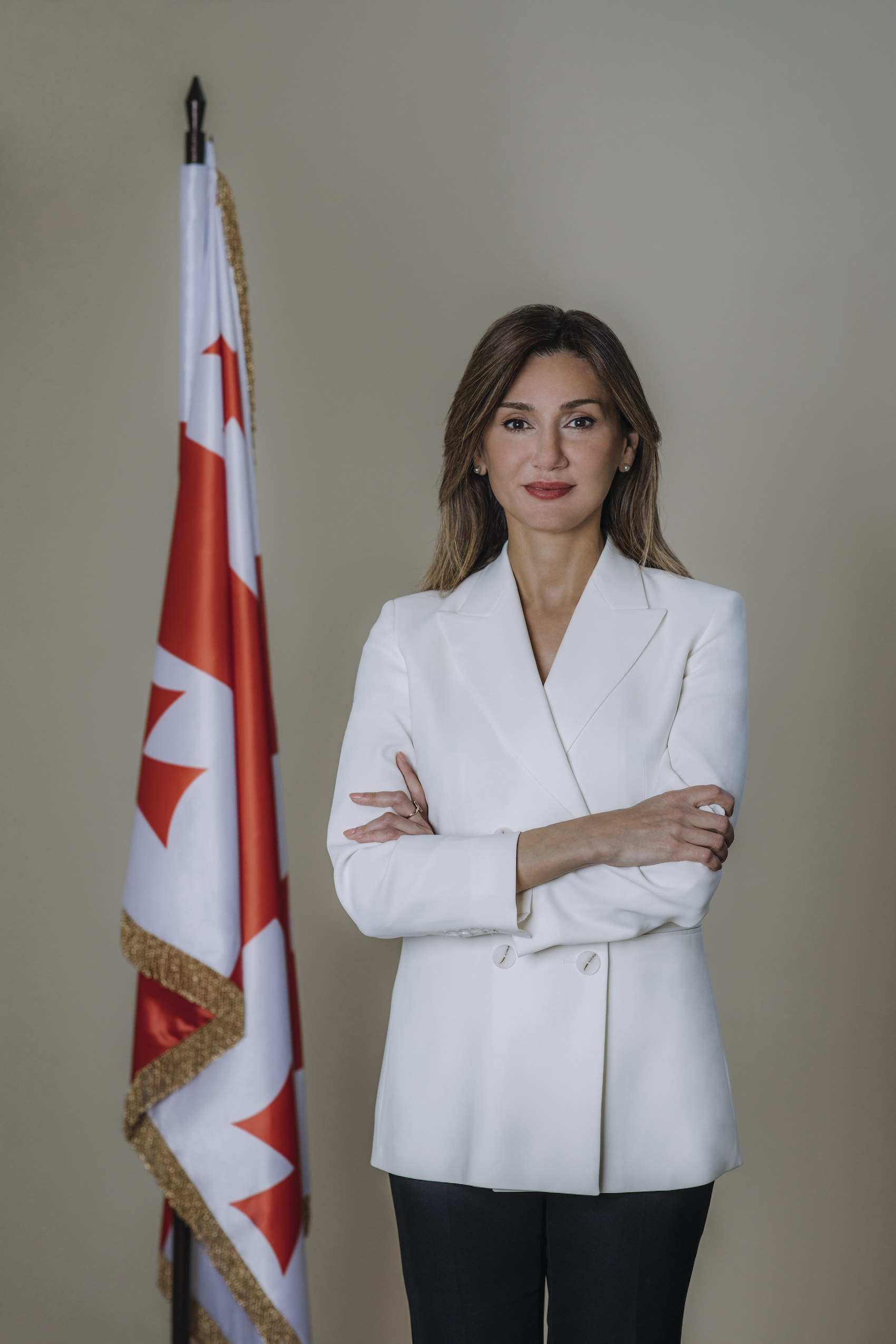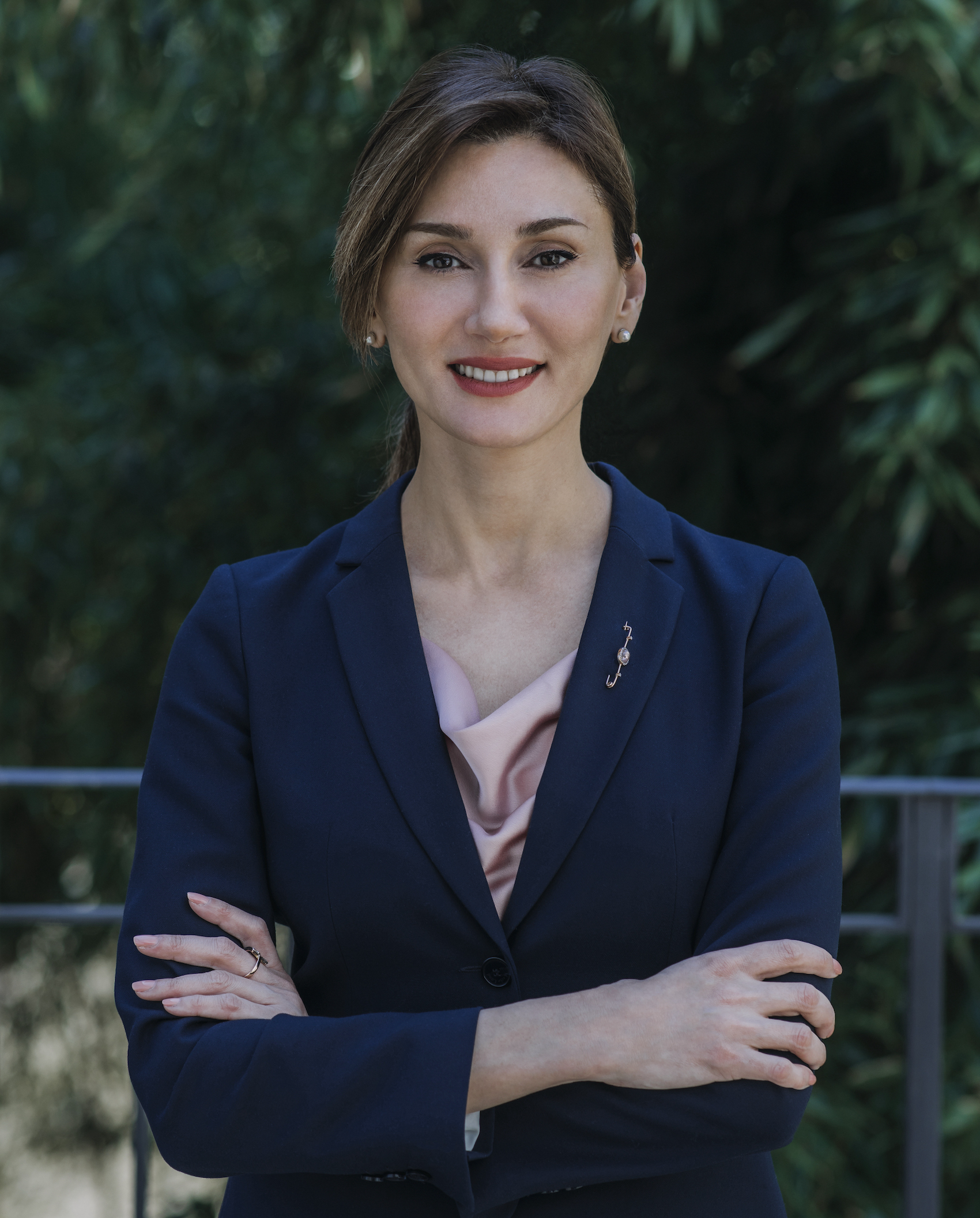“Czechia is a favourable destination for every diplomat”

Text: Martina Hošková and M. Zisso; Photo: adam-costey studio
Mariam Rakviashvili is a Georgian career diplomat, serving as the ambassador of Georgia to the Czech Republic since 2019. She joined the Ministry of Foreign Affairs of Georgia in 2003, where she served in various diplomatic positions. Until recently, she was a deputy state minister of Georgia for European and Euro-Atlantic integration. Mariam Rakviashvili has a bachelor’s degree in architecture and a master’s degree in European law and international relations. What does she appreciate about our country? And how does she perceive European integration?
What is it like to be a diplomat in the Czech Republic?
For a diplomat, it is a privilege to live and work in a friendly country, a country that shows political support; this is the key to successful cooperation. Czech and Georgian people have much in common, and this is partly due to our similar history of living and struggling under the communist regime – this shared experience brings more understanding to our relationship.
The quality of everyday life is very high here in Czechia – everything is well organized, you have effective services, a good education system, many cultural and sports events are happening here… there are various places to see around Prague, and it is a kind of endless adventure in a fairy tale. My children, Elene and Kosta, are also enjoying their everyday lives here in Prague. They are the typical diplomats’ kids – always quick to adapt to a new reality – and for this, I am very thankful to them. It is very important for career diplomats to have supportive families. I have enormous respect for the general attitude toward nature preservation here. Prague is one of the greenest cities in Europe and it definitely has a positive impact on one’s lifestyle. I personally enjoy Czech architecture, as my first university degree is in architecture and design. Prague Art Nouveau architecture is especially splendid. Czechia is a favourable destination for every diplomat.
Thank you for your positive words, I hope the status of Czech-Georgian relations is equally splendid.
Yes, the bilateral Czech-Georgian relations are an exemplary case of partnership and cooperation. The Czech Republic is one of the strongest supporters of Georgia’s European and Euro-Atlantic integration, and grants valuable financial and political assistance to facilitate the complex process. At the same time, the strong support of the Czech government toward Georgia’s territorial integrity is of utmost importance, as 20% of Georgian territory is occupied by Russia and the population of the occupied regions of Abkhazia, Georgia and the Tskhinvali region/South Ossetia, Georgia, is subject to severe human rights violations on a daily basis. This is something that requires vocal support from our partners, and the Czech Republic is one of them. Georgia is the Czech Republic’s important development cooperation partner. Since 2008, the priority focus has been to address the impacts of the conflict with Russia as a matter of greatest urgency. The Czech government allocated an extraordinary volume of funding for reconstruction and development assistance in the country. Gradually, the nature of the cooperation has evolved from humanitarian assistance, through post-war reconstruction, into stability and the integration of Georgia into the European Union. When it comes to the investments, the Czech Republic is one of the leading investors among the EU countries, mainly in the energy sector, but if we look at the recent statistics, the Czech entrepreneurs ́ sphere of interest is extending and includes hospitality, medical wellness tourism, the manufacturing industry etc.
How do you view the upcoming Czech EU presidency – are you expecting the cooperation between our countries to intensify even further?
The upcoming Czech presidency of the European Council will see your country take a leading role on the international stage. This is a crucial time to act with unity and to resolve pressing issues. Just recently, Georgia, Ukraine, and Moldova – the Eastern Partnership ‘Trio’ countries – have applied for EU membership, and I am sure that the Czech Republic’s role in safeguarding our European future will be decisive. I would like to quote the Italian writer Umberto Eco here: “The language of Europe is translation” – translation of different cultures into shared values, in my opinion.
I believe that this is the notion of Europe.

You were a deputy state minister for the European and Euro-Atlantic integration of Georgia. What are the prospects for Georgia’s EU and NATO membership?
EU integration is not a decision made by a certain political party. European values are part of Georgian identity, Georgia is a European country. If you look at the polls, about 80 % of Georgians support the EU and NATO membership. The signing of the Association Agreement with the EU and the granting of visa-free travel status between the EU and Georgia was definitely a milestone. When we speak about the European integration of Georgia, it is important to remember the complexity of the region’s geopolitical context, especially in light of the tragic developments in Ukraine due to the Russian aggression. Although a pro-western orientation is very strong in the country, there is a certain scepticism fuelled by Russian propaganda, saying that Georgia will never be an EU member, stating that there are alternatives. In this situation, it is important to keep consistency and receive strong support from the EU.
NATO membership is another priority of Georgia’s foreign policy. Georgia is the most advanced NATO aspirant country, and it is well recognized that all the practical tools we have help to speed us up to full membership in the alliance. Unfortunately, the decision not to grant Georgia the Membership Action Plan (a precondition of membership) in 2008, at the Bucharest summit of NATO, was seen by Russia as an invitation to invade and start military actions. The refusal was a clear signal to Russia to continue its expansion, and, unfortunately, Georgia was the first to face the aggression. Today, the war and Russian atrocities in Ukraine have made it crystal clear that the consolidation of the civilized world, combined with strong political deci- sions, is the only solution to stop the Kremlin’s aggressive policy toward its neighbours.
This interview is done on the occasion of your national day. What do you wish your country?
This year, Georgia marks the 104th anniversary of its independence. Following the First World War, Georgia adopted the declaration of independence in 1918 and the first constitution in 1921, which was based on several Europe- an examples, including the constitution of Czechoslovakia. However, soon after its adoption, the Democratic Republic of Georgia fell under the Soviet occupation for decades. Georgian people paid a high price for independence, but, unfortunately, the fight is still going on. In this context, I wish Georgia peace and freedom – the most important precondition for a country’s development and prosperous future.

